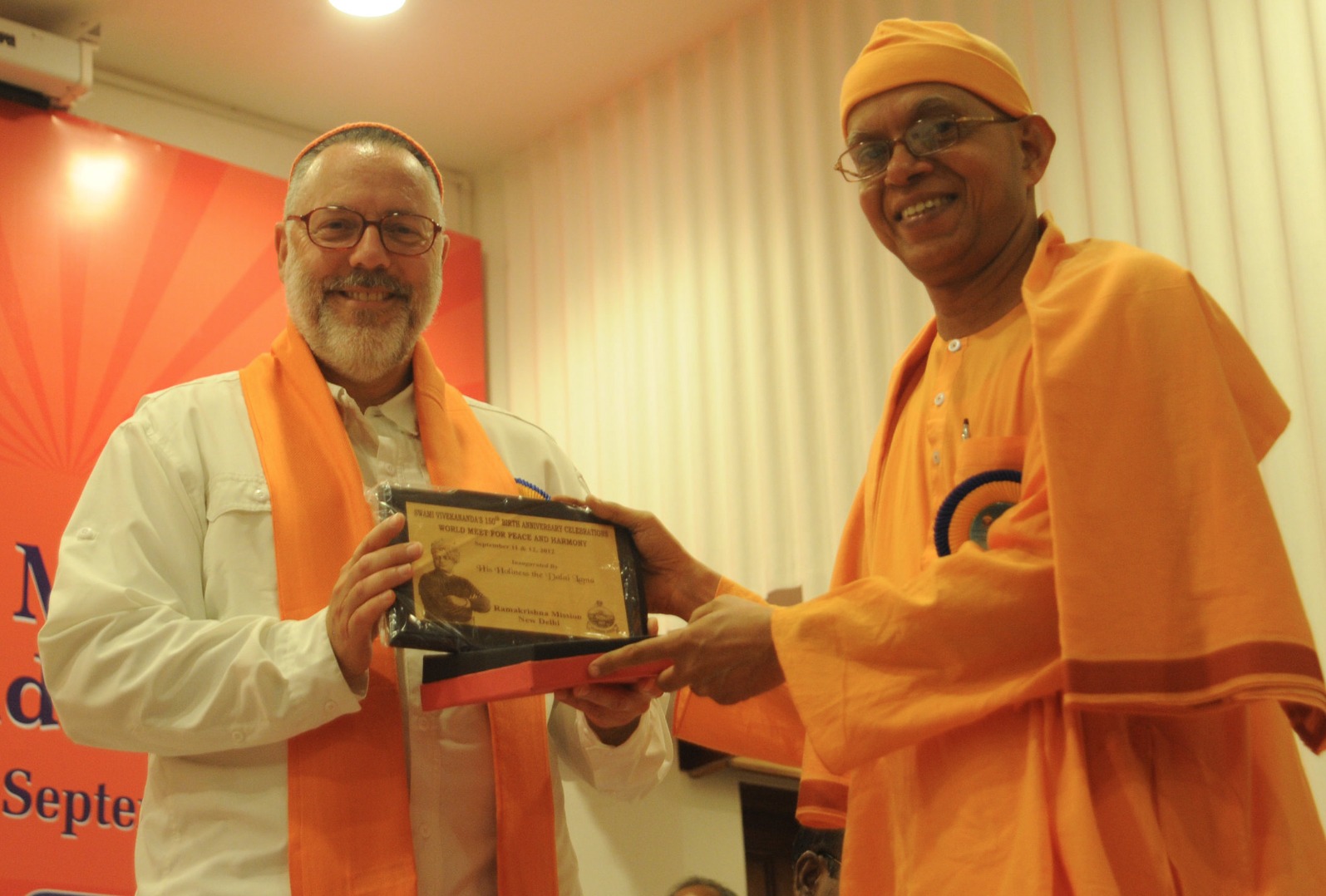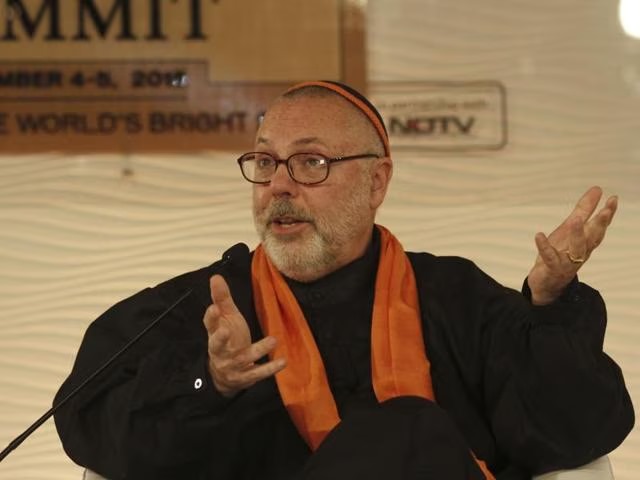Hinduism and Judaism
By Swami Muktananda
Hinduism, characterized by its flexibility, pluralism, and inclusive openness, allows its followers to accept and live according to Jewish law without compromising their religious identity or the fundamental principles of their tradition. This possibility stems from Hinduism’s capacity to integrate and value multiple forms of spiritual life, as long as they promote universal values and contribute to the individual’s inner development. To understand how this harmonious coexistence is possible, it is essential to explore the philosophical and cultural foundations of Hinduism that make it compatible with adherence to Jewish law.
In Hinduism, the divine is conceived as the supreme universal reality known as Brahman, which manifests in diverse forms to facilitate each individual’s spiritual connection. This system does not impose a single path to ultimate truth but instead recognizes the validity of multiple paths, as expressed in the Vedic principle Ekam sat vipra bahudha vadanti (“Truth is one, but the wise call it by many names”). This pluralistic approach enables the practices of other religions, as long as they are oriented toward the pursuit of the transcendent and the fulfillment of dharma (cosmic and moral order), to be integrated without contradiction into the Hindu tradition.
Jewish law, known as halakhah, establishes an ethical, ritual, and social framework designed to guide Jews in their relationship with God, their community, and themselves. This system, which includes precepts such as dietary laws (kashrut), Sabbath observance, and rules of prayer, can be adopted by a Hindu as a legitimate way of expressing devotion to the divine. From the perspective of Hinduism, halakhah can be understood as a particular path within dharma, insofar as it fosters a connection with universal spiritual principles like discipline, justice, and sincere devotion.
A key factor that makes this integration possible is Hinduism’s lack of rigid or exclusionary theological structures. It does not demand adherence to closed dogmas but instead emphasizes intention, sincerity, and devotion as the pillars of spiritual practice. In this context, a Hindu may observe the precepts of Jewish law as a valid way to cultivate mindfulness and inner purity—values that deeply resonate within the Hindu tradition. For example, Jewish dietary laws can be seen not merely as restrictions but as means to foster awareness in the daily act of eating, a principle shared with the philosophy of ahimsa (non-violence) and vegetarianism in Hinduism.
Hinduism and Judaism also share a central emphasis on ethics, justice, and communal responsibility. Observing the Sabbath (day of rest) can be seen by a Hindu as a practice that promotes introspection, conscious rest, and spiritual renewal—values that do not contradict Hindu principles but rather complement them. Similarly, the Jewish focus on righteous action (tzedakah) echoes the Hindu concept of seva (selfless service), highlighting the importance of deeds as an expression of spirituality.
The Hindu concept of svadharma, or personal duty, further enables individuals to follow a spiritual path consistent with their unique nature and circumstances. A Hindu who feels an affinity for halakhah can integrate it as part of their svadharma, as long as this practice aligns with their higher spiritual aspirations. This flexibility is reflected in the Hindu tradition of incorporating spiritual figures and principles from other traditions, as long as they are seen as compatible with dharma. For example, figures like Shri Ramakrishna and Mahatma Gandhi deeply valued the ethical and spiritual principles found in Judaism, recognizing their potential to enrich spiritual life without displacing Hindu foundations.
Moreover, Hinduism does not perceive the practices of other religions as a threat to its integrity. Instead, it regards them as different expressions of a shared spiritual quest. From this perspective, Jewish laws and rituals can be seen by a Hindu as a culturally specific way of expressing dharma, without requiring the abandonment of their identity as a follower of Hinduism. This inclusive approach reflects the essence of Hinduism, which places greater emphasis on spiritual experience than on adherence to external forms.
It is important to note that while the integration of halakhah within Hinduism is philosophically possible, it must be done with sensitivity and discernment. Spiritual progress, according to Hinduism, does not depend on adopting external practices but on the sincerity and depth with which they align with universal values and the pursuit of the divine. Therefore, a Hindu incorporating elements of Jewish law should do so from a place of respect for both Judaism and their own tradition, understanding that both paths can enrich their spiritual connection.
In conclusion, a follower of Hinduism can accept and live according to Jewish law without abandoning their religious identity or compromising the fundamental principles of their tradition. Hinduism’s pluralistic philosophy, its emphasis on intention, and its respect for multiple forms of spiritual life allow Jewish practices to be seen not as a contradiction but as a legitimate expansion of the path to the transcendent. This integration not only demonstrates Hinduism’s flexibility and depth but also offers a powerful example of how religious traditions can mutually enrich one another in the universal search for truth and transcendence.

Rabbi Rami Shapiro,
also initiated in the
Ramakrishna Order
of Vedanta Hinduism.

Jewish- Hindu wedding

Jewish- Hindu wedding

Rabbi Rami Shapiro,
also initiated in the
Ramakrishna Order
of Vedanta Hinduism.

Jewish- Hindu wedding



